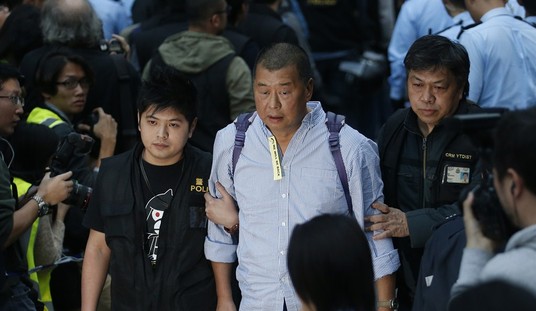‘Twas ObamaCare that killed the beast. Or at least momentarily stunned it.
Bipartisan meetings in the House of Representatives on a comprehensive immigration reform bill have failed, and the congressmen will meet for the last time today without reaching an agreement on a House bill, ABC News has learned.
The stumbling block is GOP insistence that newly legalized workers now working in the shadows have no access to government-sponsored health care during their 15-year pathway to citizenship, according to two sources with access to the secret house “Gang of 8″ meetings.
Democrats say that since these newly legalized immigrants would be paying taxes they should be eligible for benefits.
Raul Labrador, who’s been playing a role similar to Rubio’s in the House’s version of the Gang of Eight as a rising GOP Latino star who might be able to sell reform to conservatives, quit the group last night over the health-care impasse and will start writing his own bill now. Is that a divorce, though, or a trial separation, with his new, more conservative bill designed to squeeze the House Gang into caving to his original health-care demands?
One reason to think this is more significant than a mere negotiating ploy: Per Conn Carroll, Rubio himself suddenly sounded open yesterday to passing reform in a series of smaller separate bills, as the House GOP prefers, rather than in one omnibus comprehensive package. The solution has to be comprehensive, but maybe we can get there piecemeal. From the Hill’s report on Rubio’s (and Rand Paul’s and Mike Lee’s) meeting with the House Republican Study Committee:
Lawmakers described the meeting as an “airing of ideas” rather than a debate, but Rubio and his allies received confirmation — if any was needed — that conservatives in the House remain skeptical if not outright opposed to the border security element of the Senate bill…
Flake and Rubio downplayed the impact that a collapse of the bipartisan House group effort would have on the overall push, but Flake said the chances for a final bill would improve if the House passed legislation that is “more comprehensive.”
“I’m not in a position to tell the House what they can or should do,” Rubio said. “This issue can be handled in separate bills, but ultimately it must be handled comprehensively. It doesn’t have to be one bill.”
Carroll thinks maybe that’s Rubio’s Plan C in case Plan B, his border-security amendment with John Cornyn, fails in the Senate. Would Plan C work, though? Both Schumer and McCain said in late April that comprehensive reform via piecemeal legislation won’t fly. Obviously, Democrats would never agree to pass a border-security bill now with the promise of passing a path to citizenship later; they don’t care about border security for its own sake, they care about it as a bargaining chip for legalization. Passing the former without the latter would mean giving up entirely on the bargain. Rubio’s idea of separate bills would, I take it, involve the House passing a discrete border-security bill and a path to citizenship bill (along with bills on visas, guest-worker programs, etc) and then sending both to the Senate so that the bargaining remains in effect. I’m not sure what the virtue of piecemeal legislation is in that case, though.
Maybe, by splitting each issue off, you’ll encourage Congress to consider the details in each more carefully than they would if you jammed everything together in one big sloppy comprehensive bill. Or maybe not; if everything’s going to have to pass as part of a grand immigration bargain anyway, the process will remain an exercise in horse-trading on security and legalization. Another potential virtue of piecemeal bills is that they might slow the whole process down: Take some time to get border security right, then move on to guest workers, then move on to legalization. Give each component the attention it richly deserves. The problem with that approach is that 80 percent of the reason the GOP’s taken this up in the first place is to impress Latino voters next year (and in 2016). If the process bogs down, that purpose may be defeated. Which makes me think Rubio’s endorsement of Plan C might be more of a face-saving gesture than a bona fide option in case things start to fall apart in the Senate. He doesn’t want to be seen as quitting on this process, for reasons I explained in yesterday’s post. If all else fails, he’ll endorse piecemeal bills and then let Democrats walk away so that they can take some of the blame for failure.
Exit question: Is Pelosi suddenly trying to sabotage the House’s efforts on immigration? And if so, er, why would she do that?







Join the conversation as a VIP Member